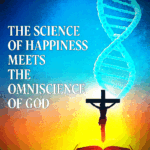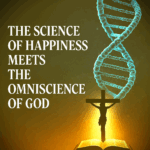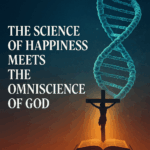“Where to Find Strength When You’re Tired” – Mark 1 & Isaiah 40
Introduction: Labels
There are a lot of labels floating around out there in our world – racist, introvert, hypocrite, homophobic, arrogant, sarcastic, self-centered, bossy, and the list goes on. There are some positive labels, too, but the negative ones are hurtful, and often stick. For example, the term ‘racist’ is one that has received a lot of press in the last year or so from many different angles and in many different contexts, and it has the potential to colour a person’s entire life, and maybe career, and maybe even relationships with others in a negative way.
Would you do something for me? Take a minute right now, consider the label ‘workaholic,’ and type in the comment section what characteristics make someone a ‘workaholic.’ Keep listening while you type, but give me something to work with in a moment or so.
1. A ‘workaholic’ pastor?
It was probably about 5 or 6 years ago now that I was called a ‘workaholic.’ It was a label that was spontaneously and figuratively posted on my forehead like a verbal sticky note. Fortunately, there wasn’t anyone else within earshot to have their opinion of me affected by that verbal sticky note.
Oh… self-disclosure… this past week, I caught myself verbally sticky-noting a person with a label, and that person wasn’t even around to defend himself. We all do it, don’t we? Labels aren’t helpful, they pigeon-hole a person with a certain character based on the impression that someone else has of that label and what it means. The label may not be entirely true. It may not be true at all.
Let me give you some context about my ‘workaholic’ label.
Where did this happen? Right out there in the entrance area of our church.
Who imposed this label? A Christian man that I respect – younger than me by 10 years or so; I have known him for about 30 years; never been part of a church I have served; never lived in the same community as me; has little experience with how I work, or how much I work or what I do on a daily or weekly basis. We had had a brief conversation of just a few minutes, and there were probably 3 or 4 specific sentences on which he based his conclusion. He cast that label on me just before walking out the doors and leaving, so I had no chance for rebuttal or to defend myself. That label, that opinion of me, has bothered me off and on over these years. You see, I don’t consider myself a workaholic.
I can focus, I can be diligent, I know what there is to do, and I do it. I can be task-oriented. Sometimes I spread myself thin. I hold myself accountable. I try to fulfill the expectations that you have for me as your pastor. But am I a workaholic?
What makes someone a workaholic? Let me have a look at some of your answers…
[READ answers from live comment section.]
A lot of those things are NOT me. I might resemble some of those remarks, sometimes. Maybe you do, too. If you’re driven, if you’re passionate, if you’re task-oriented more than relationship-oriented, if you can really put your head down and focus – well, then, someone might stick that ‘workaholic’ label on your forehead, too.
2. Was Jesus a ‘workaholic?’
So, have you ever thought… Was Jesus a workaholic? Boy, if you read Mark 1, it sure sounds like it – immediately He left the synagogue and went to Simon’s house where He healed Peter’s mother-in-law of a fever, then all kinds of people – the sick and demon-possessed – came by the house, at sundown, and He healed them all. The whole city!! Well, probably not literally the whole city… but a goodly crowd. He was as busy as… a doctor… during a pandemic!!
It seemed like he burned the candle at both ends!! Verse 32 talks about His healings well into the evening, and verse 35 sees Him “rising very early in the morning, while it was still dark,” and then verse 39 adds that He “went throughout all Galilee, preaching in their synagogues and casting out demons.” Does that sound like a workaholic? It definitely has some of those characteristics. But then remember, I said that labels aren’t necessarily helpful, or true.
3. Where did Jesus find strength?
a. In prayer
Perhaps a better question to ask today is: where did Jesus find strength to do all those things? And the answer is found in three little words. Let’s finish reading verse 35: “Rising very early in the morning, while it was still dark, he departed and went out to a desolate place, and [here come the three words!] THERE HE PRAYED.” There He prayed. Did He get up very early to head in to the office and start His work day?? No, He got up very early to pray, to find strength as He connected with His Father in heaven. That’s what Jesus did to find strength.
This wasn’t just an isolated event or occurrence. If we read the Gospels, especially Luke, we see that Jesus often went somewhere to pray – physically distanced from people and the hustle and bustle of ministry responsibilities, but physically present with the heavenly Father, and getting rest and spiritual renewal.
His ministry started that way. He spent forty days in the wilderness. We know that that was the period during which He was tempted by the devil. But the accounts of that temptation in Matthew and Luke also tell us that Jesus fasted during those forty days. In the Jewish spiritual disciplines, fasting was accompanied with prayer. So, we have a very real sense that those forty days were a time of prayer and preparation for the demands of His ministry which was about to begin.
b. In the synagogue (Word)
We also know that it was the custom of Jesus to spend time in the synagogue on the Sabbath Day. In fact, that’s where today’s Gospel reading began and ended. It began with Jesus and the disciples leaving the Capernaum synagogue, and ended with Jesus preaching in the synagogues throughout all of Galilee. The Sabbath was a day, and the synagogue was a place to connect with both the community of faith, and with God and His Word. Jesus found strength there, too.
4. Jesus’ mission – defeat the devil
Instead of considering Jesus’ actions in terms of work, it is more valuable and more appropriate to think about Jesus’ actions in terms of His mission. Last week, we heard how Jesus’ mission was to bring the Kingdom of God near to people, and an essential part of that was the undoing and dismantling and destroying of the devil’s afflictions in and influence on people’s lives. Jesus came into this world to say to the devil’s evil impact on every person’s life: “Come out of him, come out of her!” He came to restore us to a right and holy and pure relationship with God. Ultimately, Jesus brought the Kingdom of God near to us by His suffering and death on the cross. It’s there, and with authority, that He defeated the devil once and for all. It’s there that Jesus says to our sin, “Come out of him, come out of her!” That was Jesus’ passion, that was what He was driven to do, to accomplish, until He could say from the cross, “It is finished!”
Now, you can be assured – beyond a shadow of doubt – that you are healed of your sin-sickness, that you are forgiven of all your sins, that you are whole and holy and righteous in God’s eyes, that one day Jesus will take you by the hand – like He did for Peter’s mother-in-law – and raise you up to eternal life. What a day that will be!!
5. Where do YOU find strength?
a. “Waiting on the Lord” in prayer
Now that’s our future… we can be confident of that. But we still have the present to live through. And the question comes to us… where do YOU find strength when you’re tired, when you’re weary, when you feel like you’ve been burning the candle at both ends. Maybe these covid days haven’t seen you burning the candle at both ends. On the other hand, maybe they have.
Although I couldn’t find the exact source, apparently Martin Luther admitted that when he had a particularly busy day, he would get up early to spend more time – as much as three hours – with God in prayer. Yeah, I somehow don’t do that… not three hours a day in prayer… I guess I mustn’t be a very good Luther-an pastor!
But Luther’s practice does make a point that Jesus had first made in Mark 1 – when there is lots to do, there is lots to pray. And if you’re tired and weary, you will find that that time spent in prayer does bring refreshment and renewal.
That’s why the Isaiah 40 passage was so nicely paired with our Gospel reading today. First, it reminds us that the Lord is the everlasting God and the creator of all things. Then it states that He does not faint or grow weary. It goes on to acknowledge that youth and young men can become weary and exhausted with the day’s duties. But then it points to the source of our strength in any day’s battle with temptation, fatigue, and mental exhaustion, and that source of strength is “waiting on the Lord,” or some Bible translations say “hoping in the Lord.” Like Jesus, like Luther, those times of prayer and connection with God and His people are the antidote to being weary, to being tired, to stumbling, and falling, and fainting. Those times enable you to soar on wings like eagles – at least spiritually, with joy and contentment, with peace and hope in your heart despite whatever storm may be brewing in your life. In fact, the song “Grace Got You” by Mercy Me has a wonderful Gospel lyric in the second verse: “So when you’re standin’ in the rain again You might as well be dancin’, why? ’Cause there ain’t no storm that can change how this ends.” That’s true, isn’t it… nothing in our lives can change what Jesus did for us on the cross. And that gives us what St. Paul calls “the peace that passes all understanding.”
You might think or even feel that the storms of life – whether they are temptations or hardships or broken relationships or sickness or the worst sin you have ever sinned – you might feel like they disconnect you from God. I like the way Philip Yancey wrote about it in his book What’s So Amazing About Grace? He writes that one lecturer in spirituality explained it this way: “God in heaven holds each person by a string. When you sin, you cut the string. Then God ties it up again, making a knot – and thereby bringing you a little closer to Him. Again and again your sins cut the string – and with each further knot God keeps drawing you closer and closer.”
b. Jesus’ invitation: “I will give you rest.”
In Matthew’s Gospel, we hear Jesus’ own words of wisdom for those who are troubled by life’s hardships. He invites: “Come to me, all you who are weary and burdened, and I will give you rest. Take my yoke upon you and learn from me, for I am gentle and humble in heart, and you will find rest for your souls. For my yoke is easy and my burden is light.” In those words, Jesus is pointing us to where we can find strength and sustenance when life gets us down. We find that strength in Jesus who takes and bears our burdens for us.
The image of the yoke refers to oxen who are pulling a plow or a cart. Jesus says that the burden of keeping the religious rules and regulations is heavy and burdensome, but the yoke that Jesus lays upon us is sweet and light, for it refers to being yoked with Him to the Gospel of forgiveness and salvation, the Gospel of grace.
That means Jesus’ invitation is simply to come to Him and find rest. Maybe that’s early in the morning – three hours before you have to go to work – or maybe it’s late at night when sleep eludes you. Maybe these covid days have been rather dull and monotonous and repetitive and they haven’t seen you burning the candle at both ends. On the other hand, maybe they have. Regardless of which is true for you, find time, make time to be renewed and refreshed and restored and strengthened for your daily life by spending precious moments with God in prayer, and Bible reading, and worship. There you will find strength for your soul.
Let’s come back to our first consideration of labels and workaholics. Let me just remind you that labels are not helpful. In fact, they are often harmful as they paint all who carry that label with the same broad brush stroke. And if people do stick an unwanted and maybe inappropriate verbal sticky-note label on your forehead, don’t let bitterness and resentment consume you, but rather spend time in God’s Word and in prayer to find strength to change that person’s opinion of you, and to be the person that God wants you to be. And Jesus… well, I don’t believe He was a workaholic. He enjoyed being with people, as is evidenced by the number of times that He was caught eating with people, developing relationships and caring for them in their times of need. He was focused on His mission – to proclaim the good news of the Kingdom of God, to live out that good news of the Kingdom of God, to destroy the works of the evil one, and to accomplish your salvation. And that is the good news, the best news ever that, even when we are physically tired, can bring us the rest we need for our souls. Amen.
[Refer to words of opening Hymn # 906]








